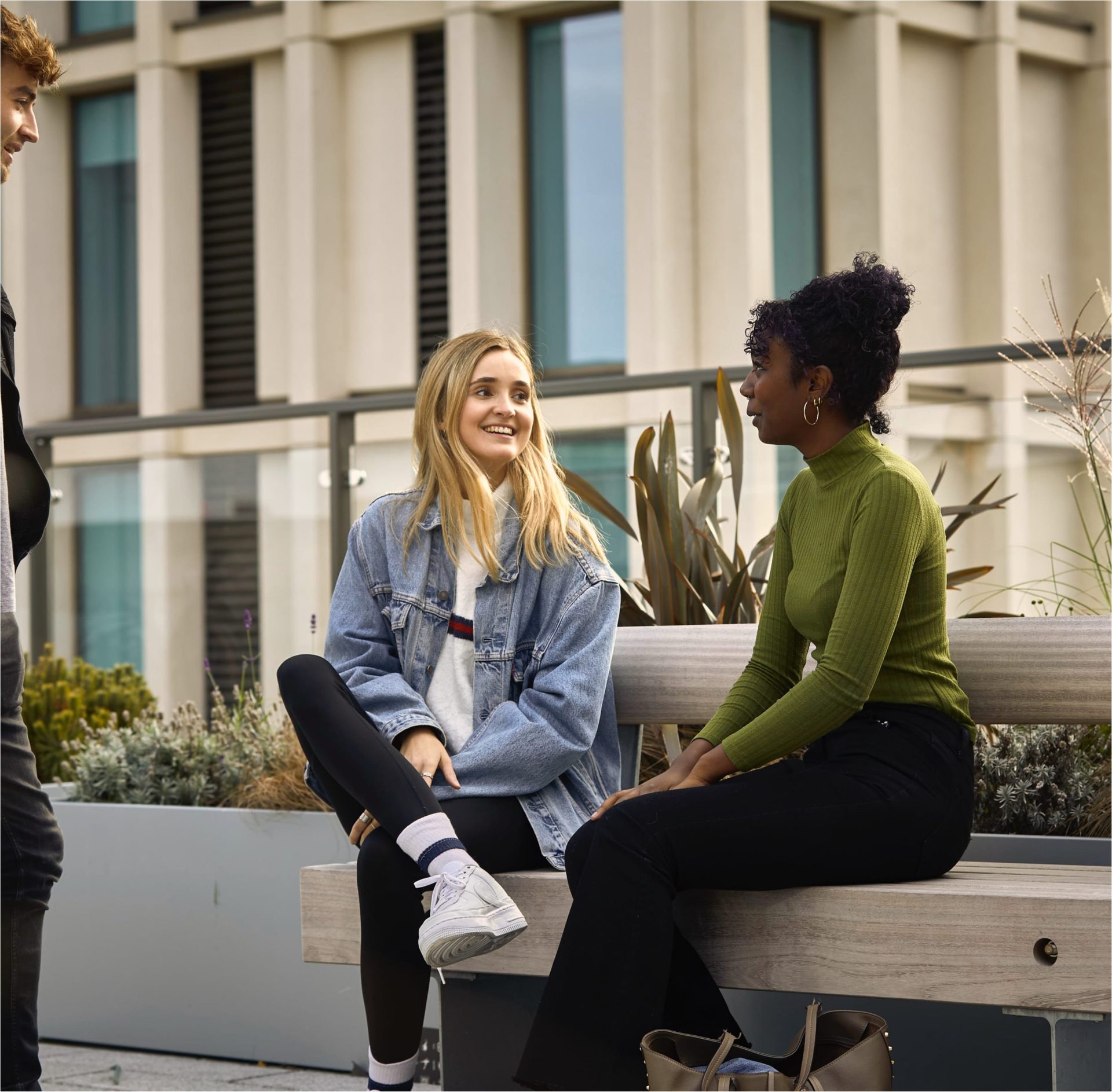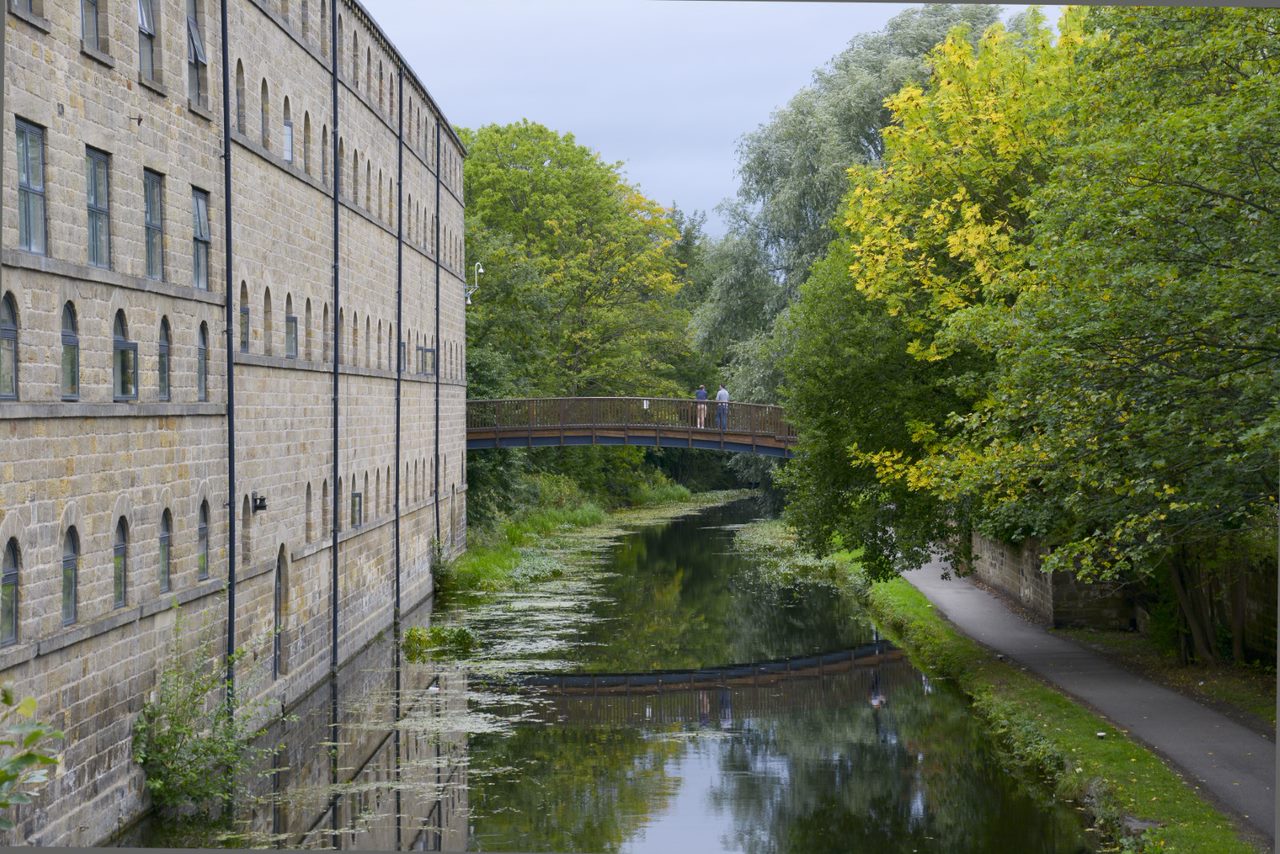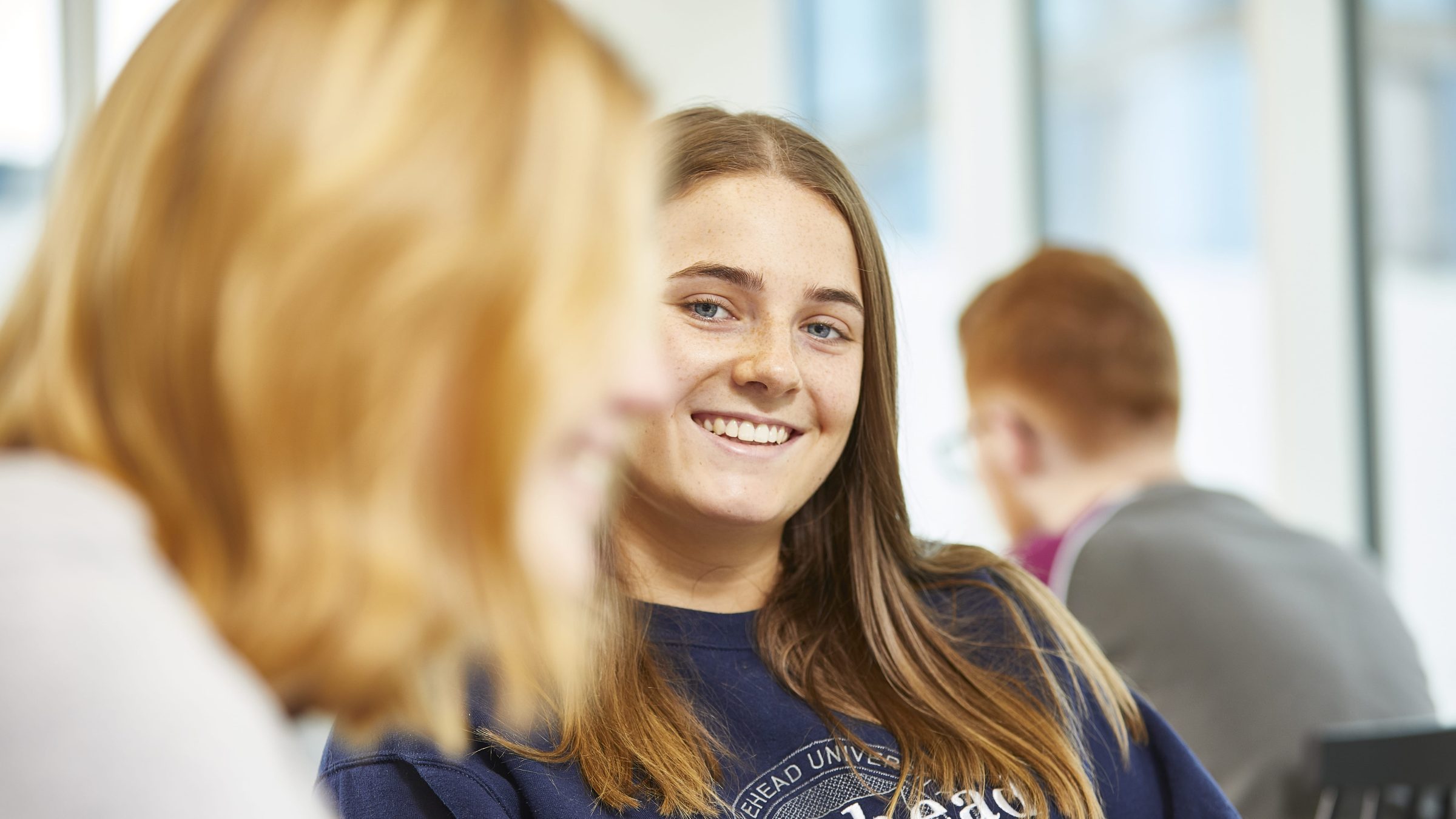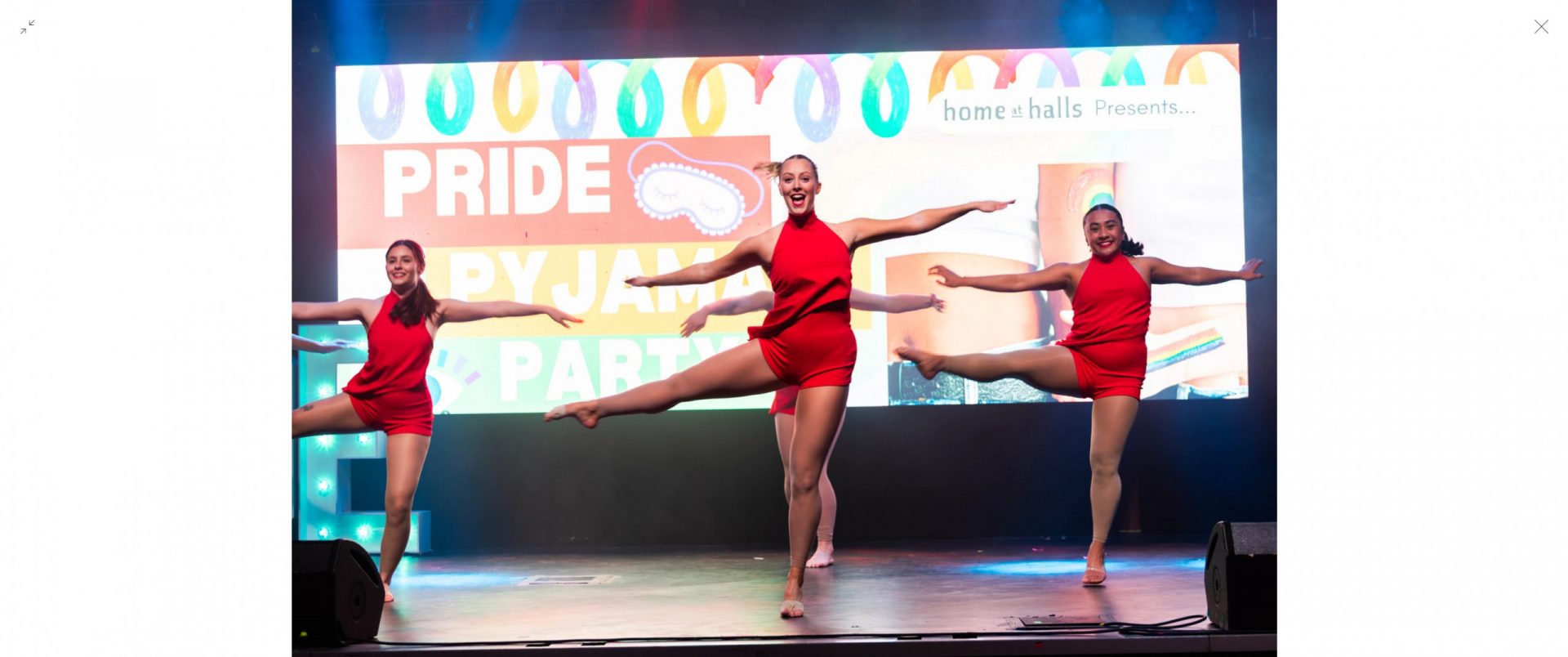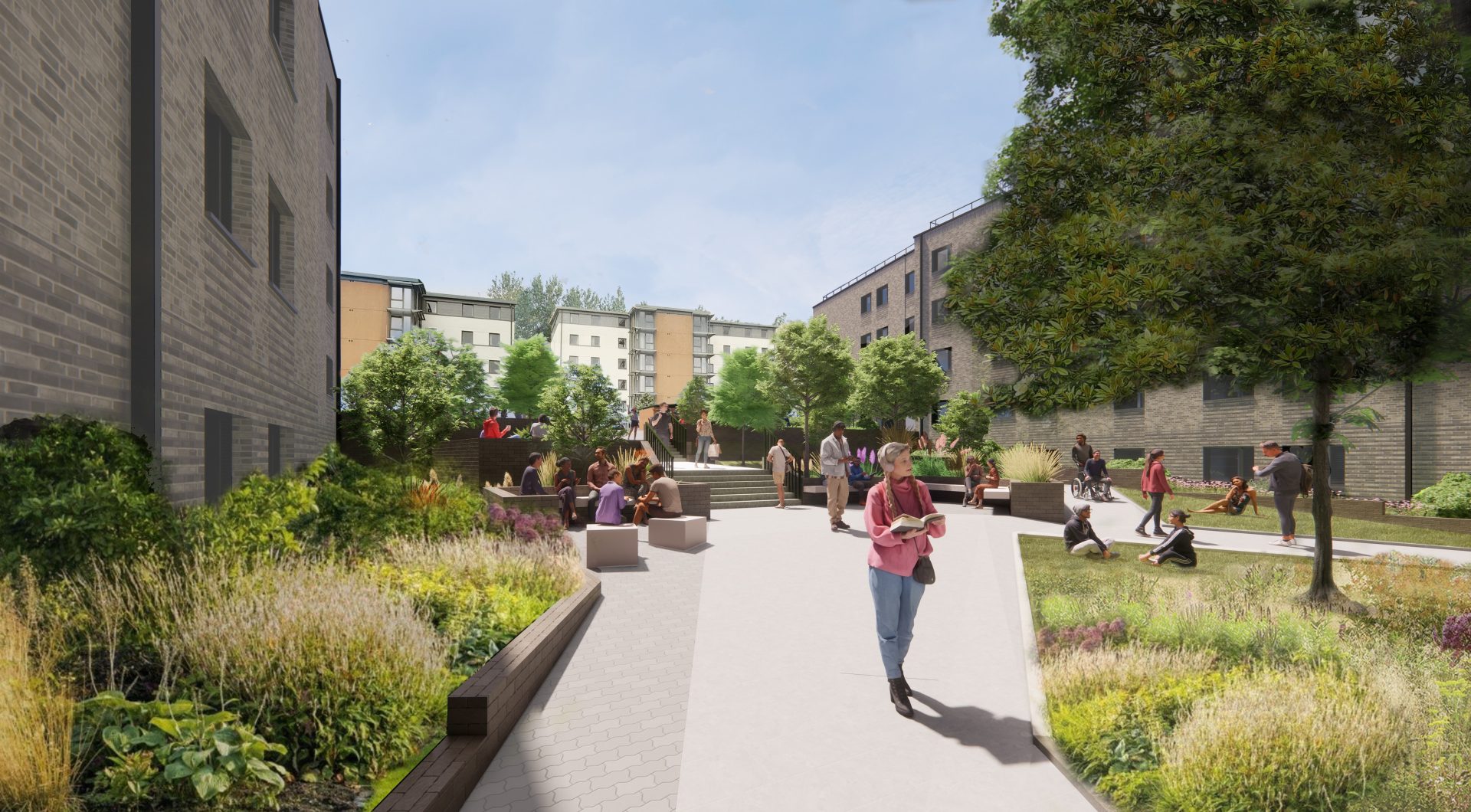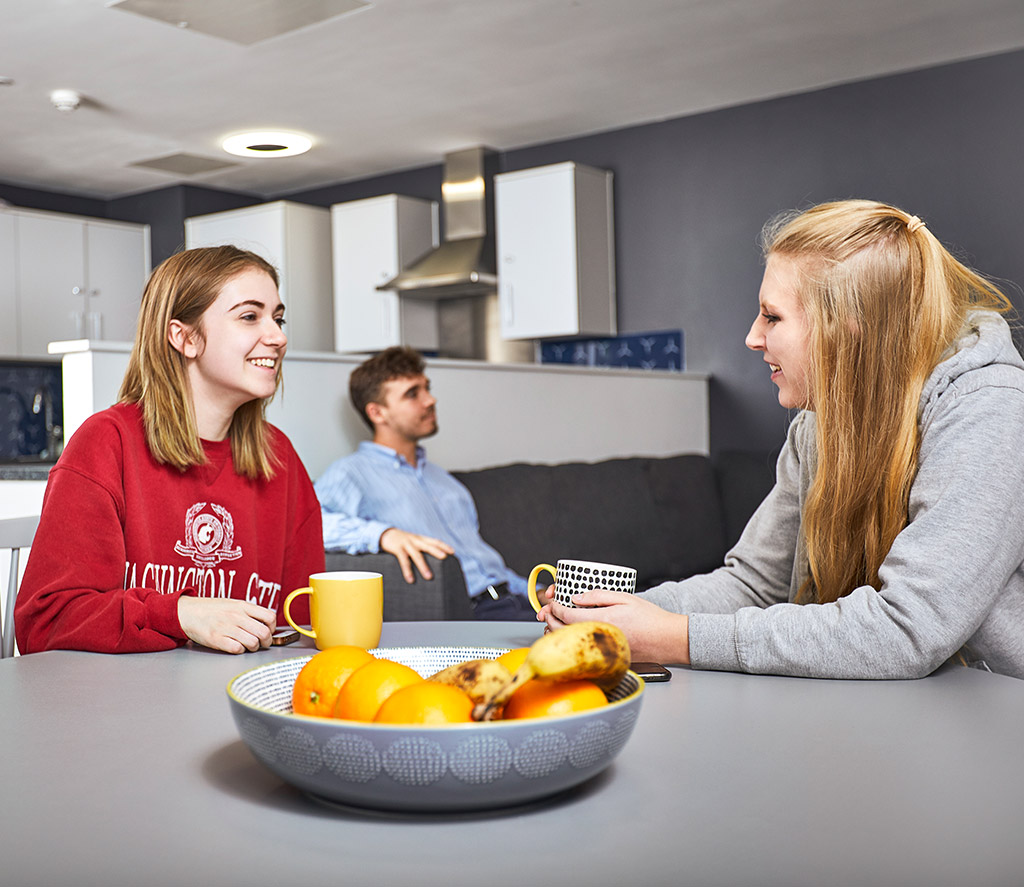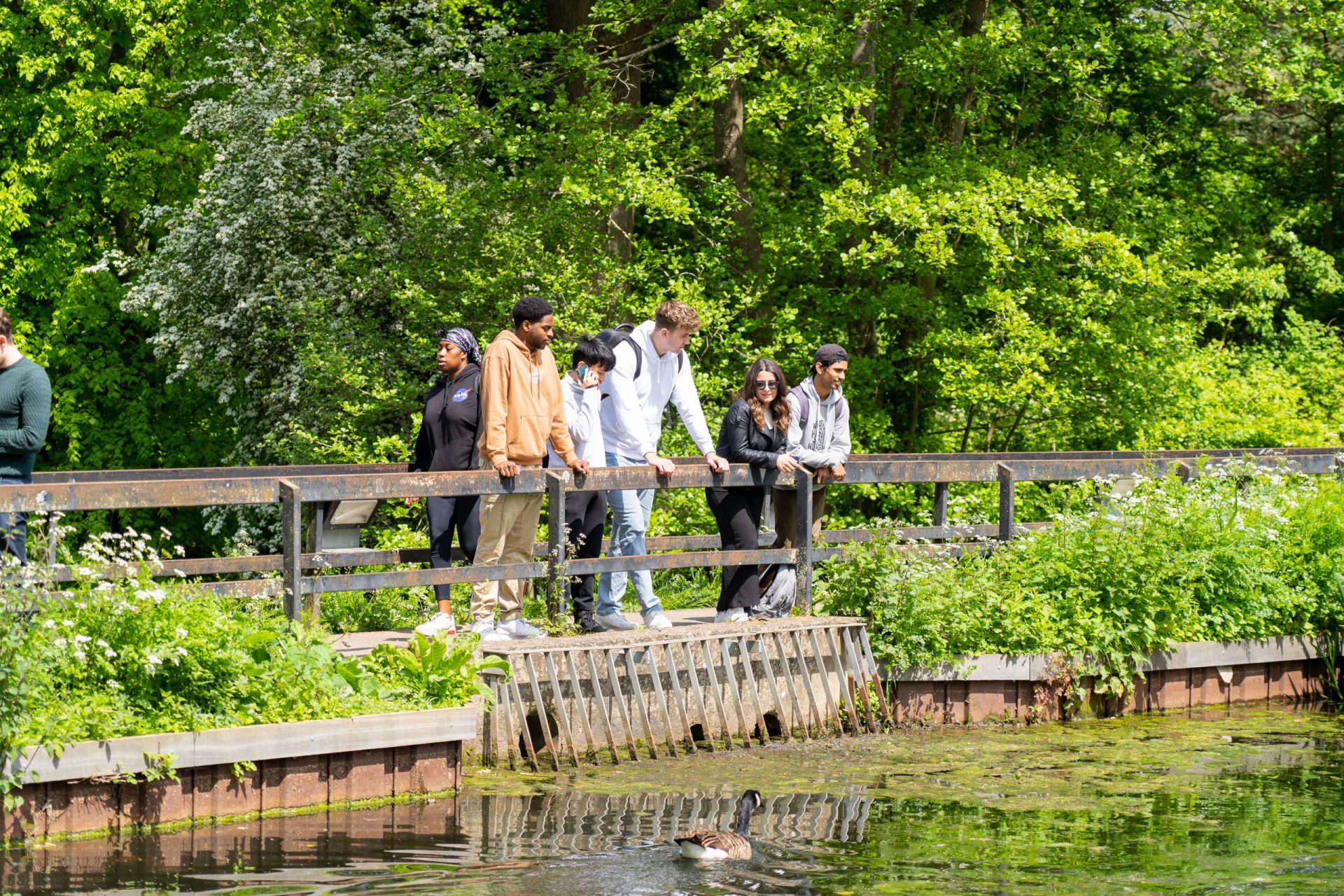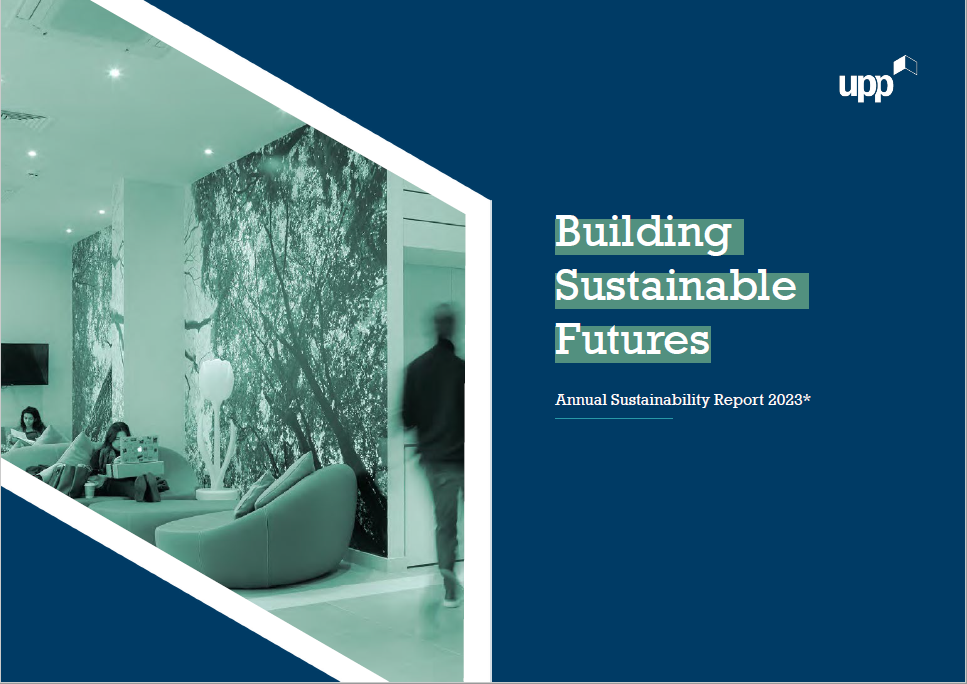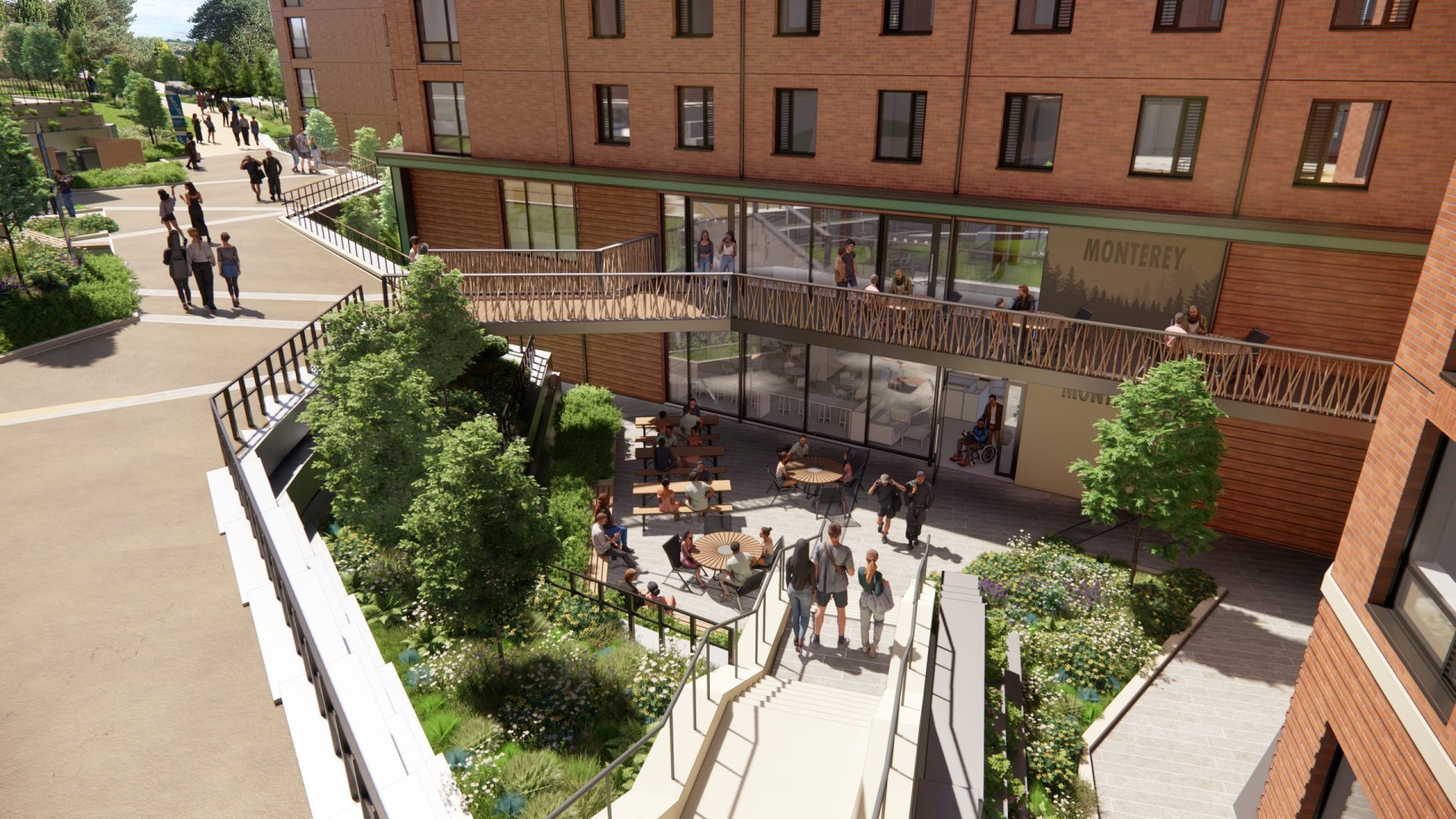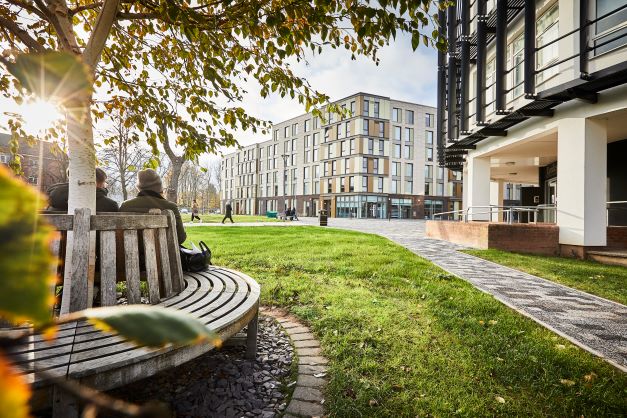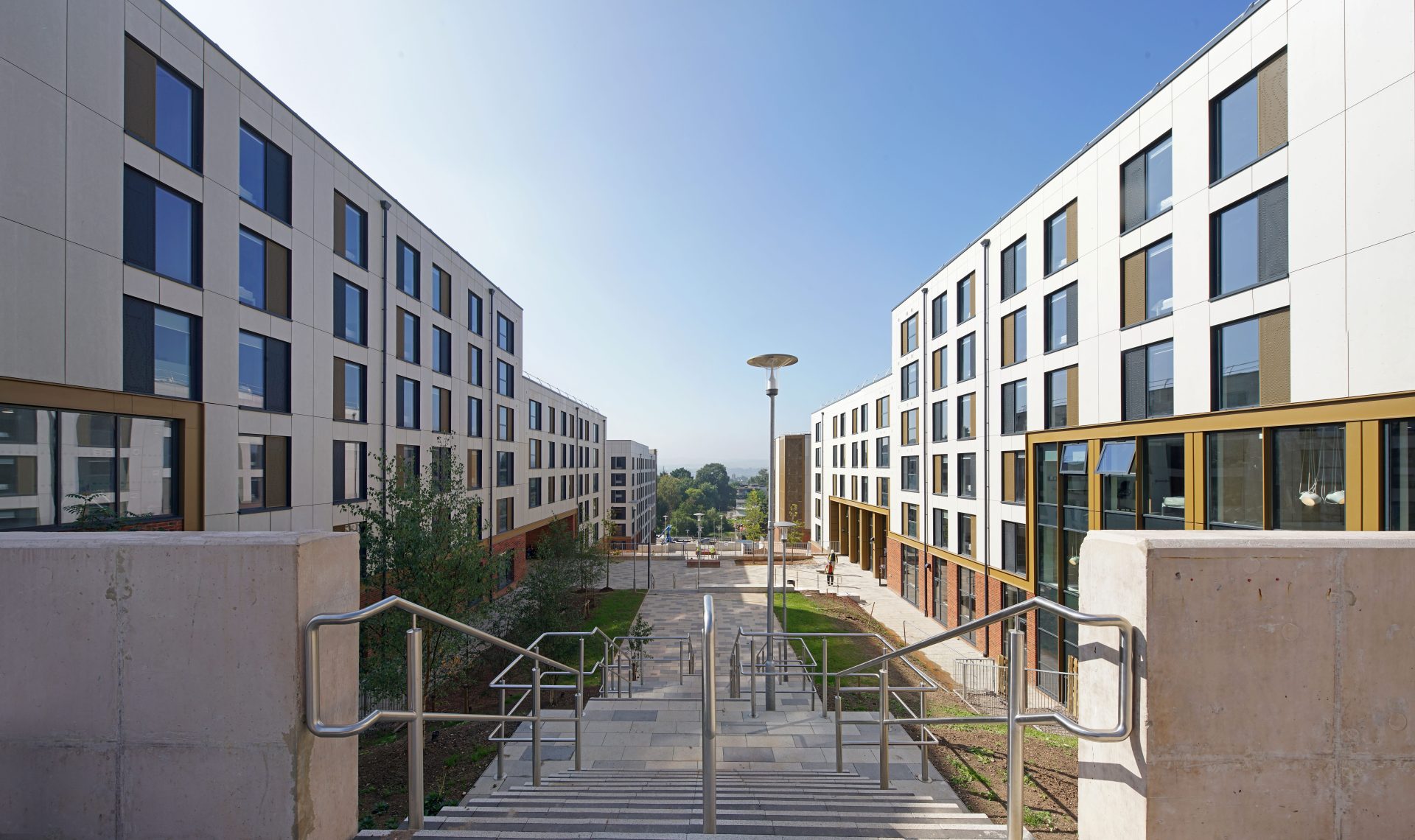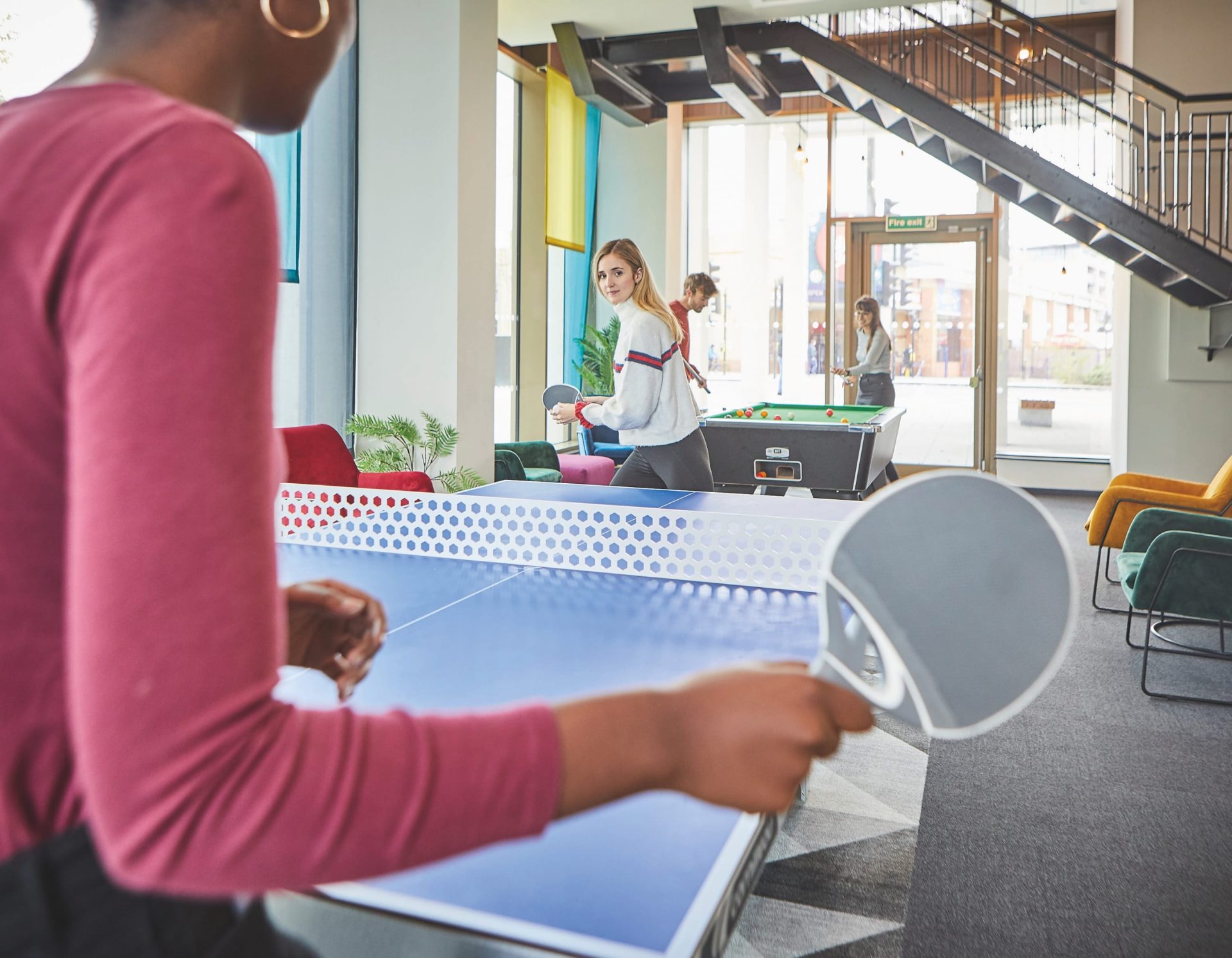Ellis Noble-Lowe, UPP’s Student Engagement Lead looks at the lessons learned from our bespoke approach to student engagement, delivering events, opportunities and support for students in UPP halls, helping them to feel more at home in our accommodation.
New UPP Foundation research shows a growing transactional relationship between students and their university and institutions are feeling an increased pressure to do something about it.
Every year universities across the country welcome thousands of young people to study, most of them living away from home for the first time in their lives. If students don’t feel like they belong at university, there’s a real risk that they will become disillusioned and possibly drop out, not to mention the risks to their mental health. But with a more hands-off attitude than students may be used to at school, universities may feel powerless to help students feel that important sense of belonging.
Managing student accommodation in partnership with leading universities, UPP is in the perfect position to help. Our residential services and student engagement teams work together running events, creating support networks and providing the platform for students to make friends, fostering belonging and building a stronger, happier campus.
Practically, this is no small task. So far this academic year we have delivered over 250 events across seven of our campuses, attracting over 8,400 students to attend.
The programme is built around four core pillars: community, wellbeing, social value, and diversity.
Community
Student identity, engagement and motivation is strongly determined by the degree to which students feel they belong. When universities create a sense of belonging for their students, this will aid their academic success and overall wellbeing. Recent Wonkhe research found that the most likely space in which students forge connections after course contact hours was in their student accommodation.
Christmas dinner kits were provided to students staying in halls at Nottingham Trent University during the festive break, which helped to build relationships in accommodation.
We received the Christmas Feast from Simpsons and we decided to gather together to cook a big meal to celebrate Christmas. Honestly, I did not expect the party to be that fun. It was a blast and we had a whale of a time!! We spent 5 hours cooking together. Each of us was in charge of one dish. The food was delicious and more importantly, the connection between us was absolutely strengthened (before that we had some arguments between flatmates, but thanks to the gift box, we cooked together and reconciled). That night was stress-free and unforgettable to all of us.
A student at Simpsons, a UPP hall at Nottingham Trent University
Diversity
Celebrating diversity is widely linked to tackling students’ sector-wide challenges including loneliness, withdrawal, and lack of belonging. We put emphasis on highlighting different cultures of our students, and amplifying voices of minority groups.
Wellbeing
Enabling students to feel a sense of community is an integral part of encouraging healthy wellbeing. Therefore, we take a more holistic view of the student experience, placing a huge focus on wellbeing. With the increasing use of halls as learning spaces since the advent of hybrid learning, it was essential to ensure we were using these spaces to support students through the cost of living crisis and do as much as possible to support their mental and physical health.
Social value
We prepare our students for their future by prioritising life skills learning, workplace skills, financial responsibility and employability. This involves a heavy focus on sustainable schemes and volunteering in local communities.
What do UPP student engagement programmes mean in practice for our university partners?
Universities know that the UPP student engagement campaign can reach the parts their other initiatives can’t. Following a recent Play for Fun Hall Sport event delivered with UPP, Heidi Spencer, Sport Engagement Coordinator for Nottingham Trent University said:
“Working collaboratively on the event was great. Using the Home at Halls App to gain insight and to promote the event allowed us to reach groups of students we wouldn’t usually engage with. The event proved a huge success with a majority of the students that attended being new to Play for Fun.”
Benedict Wills, Nottingham Trent University Students’ Union President said “The home at halls programme has been fantastic for our students to get involved in, the opportunity to meet other people in halls and break down the barriers to engagement has been great to see. We have welcomed the opportunity to meet influencers that are making a positive change to their communities.”
How do students feel about what’s on offer?
In a recent survey of students at Reading University, 94% of respondents said they would attend an event again. The picture at Nottingham Trent University is even more positive: 99% of respondents say they would attend an event again, while the weekly social events we have held have achieved a 4.7 average rating out of 5.
Following a recent Pride event at Nottingham Trent University, one student said:
The party not only celebrated diversity but also cultivated a genuine sense of belonging. It provided a space where acceptance and camaraderie merged, leaving me with a profound appreciation for the unity and support within our university community.
Nottingham Trent University student
We tailor our weekly socials around key celebrations in the calendar and ensure that all events are inclusive and accessible for students so that there are not barriers to attendance. Recently this has included lunar new year decorations and celebrations, Easter parties and collaborating with culture and faith societies at students unions, encouraging them to attend socials in accommodation which are authentic and student-led.
We think carefully about the student demographics of each site when we’re planning events. At Meridian Court, Nottingham Trent University, there is a large percentage of Indian students who were highly engaged with the home at halls programme. Students requested a Hindi Karaoke night, so we hosted this with Indian cuisine and snacks.
What lessons have been learnt from the programme so far?
The wide variety of activities that have been offered as part of the student engagement programme shows that students are not a monolith. By talking to all students, finding out what different groups are interested in and reflecting that, we have been able to attract a much larger pool to attend, bringing the benefits of our programme to a wider audience. From gardening sessions to movie nights, painting workshops to employability masterclasses, we have tapped in to the broad range of interests that students have, giving them more opportunities to get involved.
What next?
The Student Engagement team at UPP will continue to pave the way for a brighter future for students by fostering a supportive environment where everyone thrives. As we continue to champion student success, the Home at Halls programme stands as our beacon, fostering inclusive communities, nurturing wellbeing, and upholding the values of diversity and social value. Together with our site teams we will build belonging and ensure every student’s journey is one of fulfilment and achievement.
To find out more about UPP’s extensive and varied student engagement programmes, contact Ellis Noble-Lowe, Student Engagement Lead.



